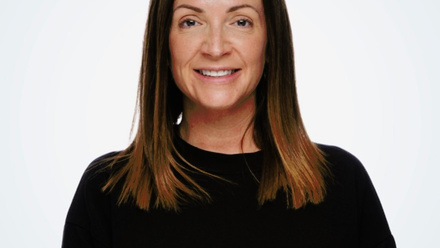How to manage millennials’ financial wellbeing needs

For many employers, engaging with millennials is the biggest challenge. Born between 1980 and 2000, they now make up the largest part of the workforce as baby boomers head off into retirement. Ignoring their financial wellbeing needs could have implications for employers.
What millennials want
Millennials bring a different set of expectations to the workplace. They like information and, as the first generation of digital natives, they’re comfortable exploring large volumes of it if it helps them make informed decisions.
This appetite for knowledge and understanding also means they resent being forced down a particular route, preferring instead to make their own choices. It’s also a generation with very diverse needs. While some may be saddled with debt, others may have inherited or achieved financial independence and be more financially secure.
Asking millennials in your workplace about their financial experiences can give you valuable insight into how to engage with them. When I spoke to millennials in Aon, they told me the traditional approach, where advisers spoke to them about their pension options, was overly formal and patronising. It shows the importance of not only getting the message right, but also the tone of voice and channel of delivery to the millennial audience.
Instead millennials want to be given the information and education they need to be able to explore their options. Then, having made an informed decision about what they should do, they want to be able to complete the transaction. It’s all about empowering them to take the steps that will secure their financial wellbeing over the short, medium and long-term.
Information age
Providing information that resonates with millennials is key to enabling this. It can be difficult to see how the decisions they make today will affect their future financial position, so a roadmap that enables them to explore this can be invaluable.
This could segment their different financial priorities, grouping together those that are short-term, such as debt and shopping discounts; medium-term, for instance saving for a mortgage deposit and protecting a family; and long-term, including pensions and retirement savings.
In addition, rather than describing what a particular benefit is, explain what it does. For example, life insurance might provide four times salary on death, but it may be more engaging to say it’s a product that will ensure their family won’t be left with money worries if they die prematurely.
It may sound a bit sci-fi, but augmented and virtual reality could, one day, also have a useful role to play here. As well as ticking the box for millennials’ love of technology, showing employees how different decisions through their career might influence their benefit selection in a more fun, experiential way can be much more memorable and engaging. Ultimately, the goal is to help them to have a better understanding of their financial wellbeing needs and what choices they might face during their working life.
Self-generated content also has a part to play in helping millennials make decisions that will affect their financial wellbeing. Platforms such as Yammer and Facebook’s Workplace let employees share their experiences and views. This can be hugely effective when it comes to encouraging engagement with employee benefits and financial wellbeing.
Millennial benefits
The diversity of millennial employees’ financial wellbeing needs may also necessitate a rethink of the traditional benefits package. Offering a set range of benefits is rapidly becoming outdated. As well as feeling like a forced decision, one size most definitely doesn’t fit all in today’s workplace.
Take pensions for example. A simple group personal pension style scheme may suit an employee who has just started saving for retirement or those that don’t wish to have a high degree of involvement, but someone with a larger fund may prefer the flexibility of a self-invested personal pension. And, for someone saddled with debt, is it even appropriate to be saving into a pension?
Organisations should consider offering more choice around the products that employees can select. Flex schemes have already enabled this choice to some degree, but it may be appropriate to take this to the next level by giving employees access to a platform that allows them to select from a much broader range of products. These could include employer-sponsored products but also ones that are available in the wider market.
Hitting the target
The right communications programme is also essential. Employers can be stumped by this, as while millennials are bringing different requirements to the workplace, they also have to cater for older employees who may be more comfortable with a traditional approach.
Given this, demographic segmentation is a must but it’s also important to avoid generalising. As an example, when it comes to communication material, while it might feel appropriate to deliver the same message to your over-50s with letters, your 35-50 year olds with emails and your under-35s with video and social media, this is a far too simplistic approach and risks alienating employees of all ages.
Instead, take a more strategic view and target groups of employees with a more personal message by segmenting by profile and/or activity, such as whether they’re utilising certain benefits (income protection or debt management for example), dealing with debt, if they have a family, or if they’re looking to retire in the next 5 to 10 years.
Meeting the financial wellbeing needs of a workforce is hugely important, and with millennials influencing those around them, getting the approach right for this group can be invaluable.
Martin Parish is head of pension consulting at Aon Employee Benefits.
This article was provided by Aon Employee Benefits.






